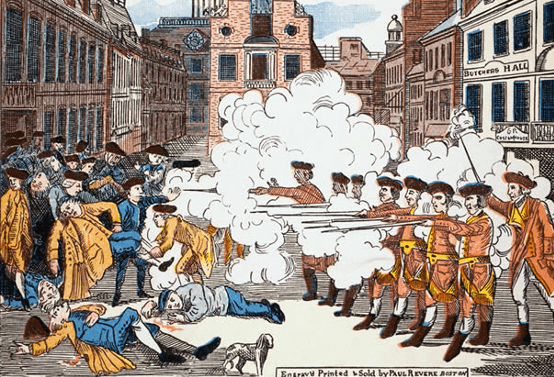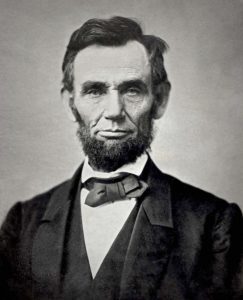“May it please your Honours, and you Gentlemen of the Jury, I yesterday afternoon produced from the best authorities, those rules of law which must govern all cases of homicide, particularly that which is now before you; it now remains to consider the evidence, and see whether any thing has occurred, that may be compared to the rules read to you; and I will not trouble myself nor you with laboured endeavours to be methodical. I shall endeavour to make some few observations, on the testimonies of the witnesses, such as will place the facts in a true point of light, with as much brevity as possible; but I suppose it would take me four hours to read to you, (if I did nothing else but read) the minutes of evidence that I have taken in this trial. In the first place the Gentleman who opened this cause, has stated to you, with candour and precision, the evidence of the identity of the persons.”1

This was part of the opening statement that John Adams gave at one of the most popular trials in American history. The Boston Massacre and the trials that followed were part of the sequence of events that ultimately led to the American Revolution. John Adams, one of our founding fathers, played an active role in these trials. However, John Adams did not defend his fellow colonists in these trials, but rather he defended the British soldiers who were put on trial for the murder of five colonists on March 5, 1770. John Adams received an invitation to be the leading defending attorney in the case of Captain Preston and the soldiers. Although many denied this request, John Adams without hesitation agreed. Adams’ motivation for taking the case aren’t clearly known. Adams knew that taking on such a case would be very dangerous, and he and his family could be attacked by an angry mob. And if he were to fail, his economic future, along with any career goals, would be in jeopardy. Adams’s reasons for defending the soldiers are not entirely known, but Adams was known to believed that everyone deserved a fair trial, no matter the situation. In addition it is also believed that Adams was hoping to use this case to help his political career.2 When asked about how he felt about the trial, he responded, “The part I took in Defense of Cptn. Preston and the Soldiers, procured me Anxiety, and Obloquy enough. It was, however, one of the most gallant, generous, manly and disinterested Actions of my whole Life, and one of the best Pieces of Service I ever rendered my Country. Judgment of Death against those Soldiers would have been as foul a Stain upon this Country as the Executions of the Quakers or Witches, anciently. As the Evidence was, the Verdict of the Jury was exactly right.” –John Adams3
Weeks before the trials even began, a huge propaganda war over the massacre had broken out. Samuel Adams and the Sons of Liberty were working hard to make sure their version of the story was heard. Their story was about the Red Coats and how they heartlessly murdered innocent residents. Not only that, but the Sons of Liberty also published the famous engraving of Paul Revere’s showing the British officer Captain Preston ordering his men to fire. The illustration even showed an extra musket firing out of the customs house, to demonstrate that the redcoats had planned this attack. However, Captain Preston was also writing from his jail cell his side of the story for publication.4 The trial did not take place right away. It was delayed for seven months, and then it only lasted eight days. The delay was to allow the tensions in Boston to calm down.

Adams sought to have separate trials for Preston and the soldiers since Preston was not accused of killing, but rather for just ordering his soldiers to fire. Captain Preston was prosecuted independently from his soldiers and was up first for trial. During Captain Preston’s trial, Adams argued on Preston’s behalf that there was a great deal of confusion on that night, but that there was no concrete evidence that Preston had given the order to fire. Adams, leading the defense, called twenty-two witnesses in one day. One witness, a merchant, testified that during the madness of the night, he stood next to Preston, and even had his hand on Preston’s shoulder, and he did not hear him give the order to fire. Three black witnesses, two slaves and a freeman, gave testimony that they did not hear any order to fire. Eyewitnesses also presented contradictory evidence on whether Preston had ordered his men to fire on the colonists, which helped Adams defense. After this, Adams argued that reasonable doubt did exist. Preston was found not guilty.5
Although Captain Preston’s acquittal was a good win for Adams, it complicated the soldiers’ trials as they would be viewed as solely responsible for the shootings. Adams defense strategy focused on the behavior of the mob rather than who shouted “fire.” Adams argued that the mob was threatening and harassing the soldiers and that they were attacked by a group of “motley rabble of saucy boys, negroes and mulattoes, Irish Teague’s and outlandish jacktars.”6 Adams made it clear that the soldiers felt endangered and had a right to fire into the crowd as an action of self-defense, and that their actions may qualify for manslaughter, but certainly not murder.
Quincy presented many witnesses that also presented the case that the soldiers acted in self-defense. A key factor that really helped the soldiers’ case was a second-hand testimony from one of the wounded victims that had been shot, Patrick Carr. According to the testimony, Carr admitted that the soldiers were in fact provoked and they fired in self-defense and that Carr did not blame them for his injuries. However, the prosecution was working hard on trying to paint the soldiers as vengeful, soulless monsters that fired and killed a group of innocent civilians. Nonetheless, their case was weak, and when their witnesses were cross examined, they admitted that the soldiers were in fact provoked.7
The jury acquitted the six soldiers: William Wemms, William M’Cauley, Hugh White, William Warren, John Carol, and James Hartegan. However, the two other soldiers, Kilroy and Montgomery, faced the death penalty at the sentencing on December 14, 1770. To try and escape execution, they “prayed the benefit of clergy,” a Medieval remnant of the time when clergymen were excepted from the secular courts. To receive the benefit of clergy, they had to prove they could read, in a time when most people could not. Although Kilroy was illiterate, he was still able to obtain the benefit because the reading requirement had been abolished in 1705. Suffolk County Sheriff Stephen Greenleaf branded both soldiers on the right thumb with an “M” for murder. The brand was to prevent them from ever being able to invoke the benefit of clergy again.8

The Massacre trials had a great impact on the revolution that was about to come. Samuel Adams wrote several articles in the Boston Gazette in December, 1770, saying that the soldiers had escaped the blood on their hands. The outcome of the trials were a great victory for John Adams, although the prosecution’s weak evidence and testimonies had made Adams’ victory all that much easier. Adams performed at his best. Adams was aware that there were jurors who sympathized with the Sons of Liberty, and so he was careful not to infuriate them by blaming the residents, but rather by shifting the blame towards London, since they had sent the troops. These trials also helped jump start Adams’ political career. Following the trials, he became known as one of the best lawyers. Three months following the trial, in Massachusetts he was elected to the Massachusetts House of Representatives, and years later he became the second president of the United States.9
- “Speech by John Adams at the Boston Massacre Trials,” http://www.bostonmassacre.net/trial/acct-adams1.htm. ↵
- Encyclopedia Britannica, 2020, s.v., “Boston Massacre,” by Jeff Wallenfeldt. ↵
- Douglas O. Linder, “The Boston Massacre Trials: An Account,” 1995, Famous Trials.com (website), https://famous-trials.com/massacre/196-home. ↵
- Encyclopedia Britannica, 2020, s.v., “Boston Massacre,” by Jeff Wallenfeldt. ↵
- Rebecca Beatrice Brooks, “The Boston Massacre,” HistoryofMassachussets.org (blog), November 10, 2011, https://historyofmassachusetts.org/the-boston-massacre/ ↵
- “The Boston Massacre Trials,” John Adams Heritage (website), accessed December 5, 2019. http://www.john-adams-heritage.com/boston-massacre-trials/. ↵
- “The Boston Massacre Trials,” John Adams Heritage (website), accessed December 5, 2019. http://www.john-adams-heritage.com/boston-massacre-trials/. ↵
- “The Boston Massacre Trials,” John Adams Heritage (website), accessed December 5, 2019. http://www.john-adams-heritage.com/boston-massacre-trials/. ↵
- “The Boston Massacre Trials,” John Adams Heritage (website), accessed December 5, 2019. http://www.john-adams-heritage.com/boston-massacre-trials/. ↵



26 comments
Madeline Emke
Whether you are reading an article describing a time in history or watching a historically accurate drama, viewers are always present with a hero and villain in historical context. For example, the musical Hamilton, depicting the life and death of Alexander Hamilton, portrays Alexander Hamilton as a hero while his counterpart, Aaron Burr, is shown as the villain. This article, however, opens the public’s eyes to another side of a well-known historical event: The Boston Massacre. In the article, viewers read about John Adams, the second president of the United States of America, and his defense of the British soldiers during the trials which took place after the massacre. In all honesty, I never realized that John Adams, one of our founding fathers, defended the British Crown in opposition of the Sons of Liberty, so this article provided new information in a way which limited the emphasis on a hero or villain, but rather in a fair distribution of information that might not have been common knowledge.
Thiffany Yeupell
History is often directly presented to us, determining the good and the bad immediately. But history deals with human-oriented events and the desire for a clear answer can never be satisfied. John Adams is seen as one of the Founding Fathers of America, but for one to investigate his history, one would not imagine that he would defend the trial’s defendants for the Boston Massacre. Thus, history must be recognized as a nuanced subject and can never truly be as straightforward as we would like it to be.
Lulu Guadalupe Avitua-Uviedo
Interesting how a case so long ago sounds so current now, obviously under a different situation but trying to prove innocence and guilty with evidence presented is hard. The statement written in the Gazette about the “soldiers escaped with blood in their hands,” sometimes that’s how cases do end even now. After a case one wonders if they did enough but that’s the legal world, innocent until proven guilty. John Adams as one of the founding fathers has left his print on more than one place, that is what makes him so interesting to read and learn about.
Shriji Lalji
John Adams is such an interesting person. I read his biography and realized how incredible of a person John Adams was. The dedication he had to his new found country was second to none. However in the biography it does not talk about this controversial case. John Adams thought everyone deserves a fair trial no matter the person or the crime and he lived by it. However, this was not very good for his business because in this case he was defending the British.
Davis Nickle
I really was shocked to learn the Adams was in support of the Crown during the trial of the Boston Massacre. Though it was really a misinformation campaign so you could say that Adams was on the side of truth for a time. Ultimately I am fine with his involvement in the trial because the outcome did not affect the revolution and the founding of the United States.
Brandon Torres
This article really brought out some great facts that I had forgotten, regarding the patriot himself, John Adams. Although I am aware of the history regarding one of our greatest founding fathers, I completely forgot that he made his “debut” defending the soldiers responsible for the Boston Massacre! Although John Adams is now registered as being on “our side” throughout the course of history, I am glad the author really emphasized that John did indeed try his hardest to argue for the soldiers.
Margaret Cavazos
The Boston Massacre is a fairly well known historical event, but I liked the perspective this article had on the event. The focus on the reasoning behind why John Adams took the case as well as the legal process was refreshing and made for an interesting read. I found it noble that Adams took the case and defended the redcoats possibly because he did not want them to have an unfair trial. I liked his tactic for appeasing the jury and placing the blame on the powers that sent the soldiers rather than on the colonists or the soldiers.
Hali Garcia
Great Article! I have read a little bit about the trials and I did know John Adams had defended the British soldiers who were involved but I did not look deeply into this and your article really informed me. I thought it was interesting how we do not really know why John Adams decided to defend the soldiers. I liked how you used John Adam’s actual quotes because it shows how he did believe that everyone deserved a fair trial.
Yazmin Garcia
I have always had a fascination with American history and especially its origins in the American Revolution. John Adams definitely had the right mindset as a lawyer defending a client. He truly believed in everyone receiving a fair and speedy trial just as he advocated for when founding this country. He could have easily denied defending them just as others had, but he didn’t and without a plausible reason as to why. He should be role model for those entering Law School.
Eliane Castorena
This is a very interesting article! I was not aware that these trials eventually led to the American Revolution. Although it was unclear why he took the British soldier’s side, instead of the colonists’ side, it is believed that he was a firm believer in the right for a fair trial for everyone. This article’s great detail and multiple quotes makes it easy to read and understand.